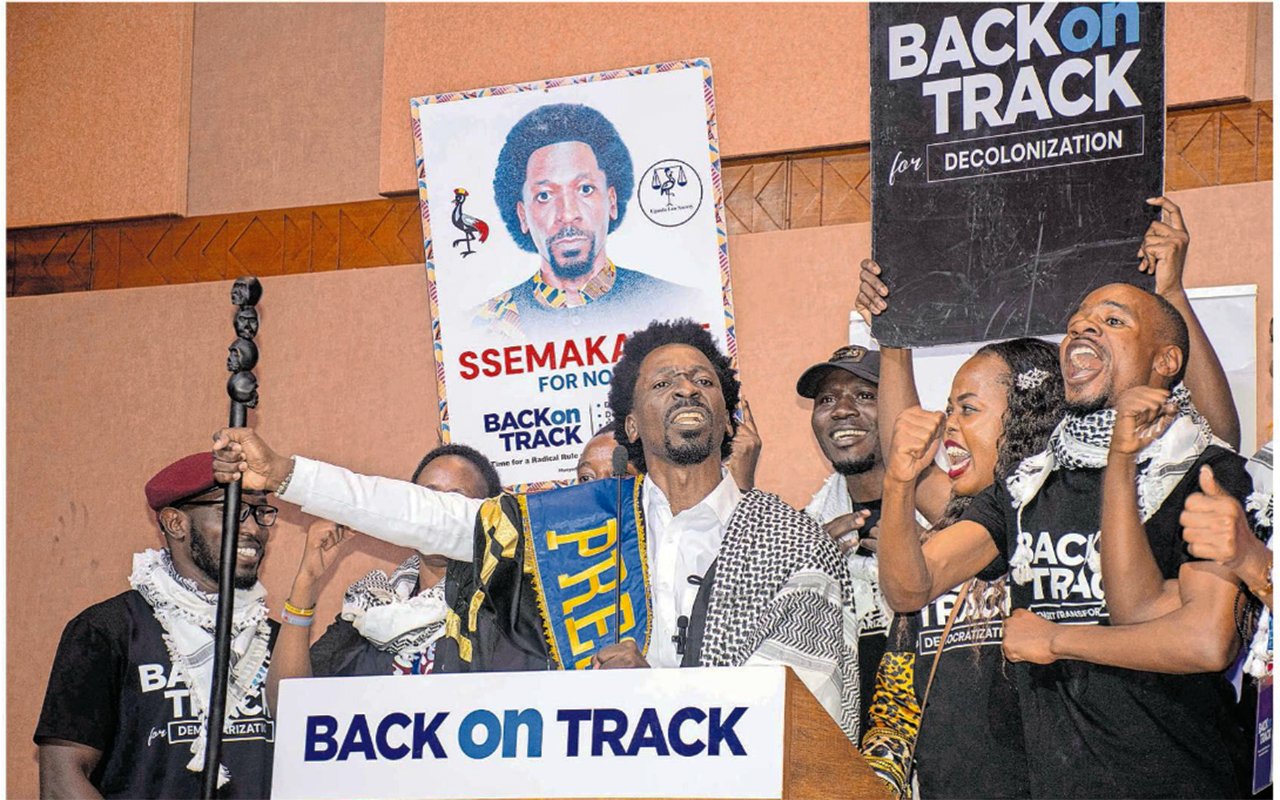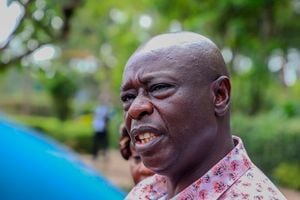Prime
Isaac Ssemakadde: A sandbox for Uganda’s next generation leaders

Mr Isaac Ssemakadde during the Uganda Law Society (ULS) presidential debate at Makerere University on Septmeber 16, 2024. PHOTO/NOELINE NABUKENYA
What you need to know:
- In his first major act as ULS president, Ssemakadde expelled the Attorney General and the Solicitor General from the ULS Council. Although many would describe his approach as anomalous, it is one that the legal fraternity voted for in numbers higher than votes garnered by the last two presidents combined.
The averagely long grip on power by the class of 1986 has widely been justified by the political dogma of focusing on ideology rather than biology.
Under this precept, one’s length of life, or stage of life, or era of conviction, or that of his or her peers, is perpetually detached from the person’s quality of ideation and leadership.
Unsurprisingly, many may hold different opinions. Nevertheless, we may easily agree that more than 73 percent of Ugandans have not had the chance to experience leadership under a president or political party distinguishable from the 1986 establishment. On paper, the Uganda Law Society (ULS) has been on a different trajectory.
In post-colonial Uganda, the ULS has had at least 22 presidents. Through a median lens, these are from averagely diverse backgrounds in terms of age, gender, regions of Uganda, pre and post-leadership political inclinations, disciplines of legal practice, et cetera. But off the paper, with a few exceptions, the performance of former ULS heads has been ideologically indissoluble.
Ssemakadde’s nascent administration has been anything but precedented. In his first major act as ULS president, Ssemakadde expelled the Attorney General and the Solicitor General from the ULS Council. Although many would describe his approach as anomalous, it is one that the legal fraternity voted for in numbers higher than votes garnered by the last two presidents combined.
The approach has also caught the attention of a good number of Ugandans. The 1986 metamorphosing ideology has been widely criticised for playing blind or being slow to act on key pressing issues including , corruption. The Inspectorate of Government (IG) report indicates that Uganda loses nearly a third of its budget to corruption. In response, President Museveni often insists that he would rather go slow, garner all the evidence, before prosecuting the vice.
Alternatively, he is happy to grant “amnesty” for those who commit these “mistakes”, good enough they invest their loot here! But what would be the approach of the alternative government? What would this young generation of Ugandans want to see? What would Ssemakadde do?
Let us imagine Ssemakadde was the independent Director of Public Prosecution (DPP) envisioned under Article 20 of the Constitution during the Karamoja iron sheet saga. We may have had the head of legislature, and other key figures in Cabinet, including the head of government business, the minister of Finance and the deputy, among others, behind bars, at least momentarily.
As to how the move would have impacted the subject institutions is a story for another day. Nonetheless, for all the dopamine that it may inject, radical change may not always be rosy.
In an X-space, Ssemakadde spoke to thousands of lawyers and none lawyers for more than two hours. But when the audience was asked to interact with him, there was hardly anyone who was willing to engage him. This may be attributable to the responses sandwiched in radical verbal artillery that those who engaged him in earlier instances had dreadfully received.
Armed with only a microphone, Ssemakadde had terrorised thousands of people. One may imagine what happens in the ULS Council meetings. Is there anyone brave enough to share independent or contrary views? This partly justifies the analysts who conclude that Uganda’s new political generation is much worse than the 1986 establishment, only that it has no guns, yet.
This is only a result of the failure to deliberately manage transition politics from the class on 1986, skipping generation X plus the early millennials.
And now, we are biologically landing into the ideology of generation Z. This being a fairly novel occurrence on all ends, Ssemakadde’s stewardship will present volumes of lessons for himself, the government in waiting, the regime in power, and Ugandans at large.
Mr Timothy Kaija is an advocate and lecturer of Law. [email protected]/@kktim19



